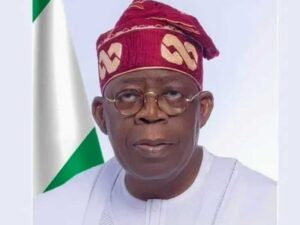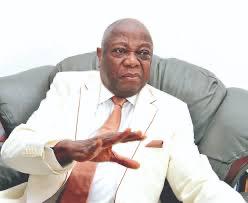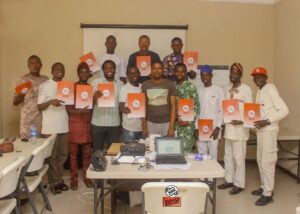President Bola Ahmed Tinubu inherited a Dead Economy – Abayomi Odunowo.
Tinubu inherited a dead economy when he assumed leadership, facing numerous macroeconomic challenges. The country was grappling with high inflation, high unemployment, low GDP growth, and a deteriorating exchange rate. These factors had collectively created a stagnant economic environment, impeding development and progress in the Nigerian economy.
In response to this dire situation, Tinubu must implement sound economic policies and structural reforms to revive the economy. This includes addressing fiscal and monetary imbalances, reducing government expenditure, attracting foreign investment, and diversifying the economy away from its heavy reliance on oil. Additionally, Tinubu should prioritize investments in infrastructure, education, and healthcare to lay the groundwork for sustainable long-term growth.
While these measures may take time to yield tangible results, it is crucial for Nigerians to remain patient and steadfast in weathering the economic storm. In the short term, the government must provide palliatives to alleviate the financial burden on citizens, such as direct cash transfers, unemployment benefits, and food assistance programs.
Through perseverance, strategic policymaking, and a cooperative effort from both the government and citizens, the Nigerian economy can be resuscitated and set on a path towards prosperity once more. It is essential for the country to remain united in the face of economic adversity, remaining resolute in the pursuit of a prosperous future.
Nigeria is a country that is facing humongous challenges in terms of economic stability, security, and social development. While the government plays a crucial role in addressing these issues, it is important for every citizen to understand that resolving these problems cannot be achieved through government efforts alone.
One of the major economic challenges facing Nigeria is the instability of the Naira. The demand for dollars has put immense pressure on the value of the Naira, causing it to fluctuate drastically. If this demand for dollars does not stop, it will be nearly impossible for the value of the Naira to stabilize. This, in turn, has a profound impact on the country’s economy, leading to inflation and a host of other economic issues.
It is imperative for every Nigerian to understand the role they can play in addressing these economic challenges. Lifestyle changes, such as reducing the demand for foreign currencies and promoting local products, can significantly contribute to stabilizing the Naira. Additionally, efforts in promoting entrepreneurship, job creation, and investment in local businesses can help boost the country’s economy.
It is crucial for every Nigerian to recognize the importance of their individual contribution in resolving the economic challenges facing the country. The government cannot address these issues alone, and it is up to each citizen to do their part in bringing about meaningful change. By making conscious efforts to reduce the demand for foreign currencies and promoting local economic growth, we can help create a more stable and prosperous Nigeria for future generations.
The former Central Bank Governor and Economist, who presided over the Nigerian economy during a period of significant change, has provided an insightful explanation of his achievements and the challenges faced during his tenure. According to the economist, he inherited an external reserve of $8 billion and was able to grow it to $63 billion, despite a payment of $12 billion in external debt. This accomplishment is particularly significant, as it indicates a significant improvement in the country’s financial position.
During this period, the economist also oversaw a reduction in the exchange rate from 138 to 112, reflecting a greater stability and strength in the country’s currency. These achievements are particularly noteworthy given the challenging global economic climate during the period, which saw significant financial crisis and turmoil.
The economist’s explanation highlights the resilience and strategic management employed during his tenure, resulting in a substantial increase in external reserves and a stable exchange rate. These accomplishments are a testament to the economist’s skill and expertise in managing the Nigerian economy during a period of significant global economic challenges.
As a result of these efforts, the economist left office with over $40 billion in external reserves, a testament to his successful stewardship of the economy during a difficult period. Overall, the economist’s explanation provides valuable insight into the challenges and achievements of his tenure, demonstrating his adept leadership and strategic management of the Nigerian economy.
All said and done, it is crucial to understand the gravity of the situation as we sit here and witness the illegal printing of money by the monetary authority in Nigeria. The Central Bank of Nigeria (CBN) Act clearly outlines the limitations and guidelines for providing ways and means to the federal government, yet it is evident that these regulations have been blatantly disregarded. The act explicitly states the amount and percentage of ways and means that can be granted to the federal government, as well as the requirement for such funds to be retired within a specified timeframe.
It is reported that the monetary authority has illegally printed over N30 trillion, far exceeding the maximum limit of N250 billion per year as stipulated by the CBN Act. This raises serious concerns about the reckless and unlawful lending practices of the central bank, which has far-reaching implications for the stability of the Nigerian economy.
The CBN Act was established with the primary objective of preventing the central bank from lending recklessly to the federal government. The provisions within the act are aimed at ensuring responsible and sustainable financial management, as well as safeguarding the country’s monetary and fiscal stability. One of the key provisions is the requirement for the federal government to retire the ways and means that have been provided within the same fiscal year. This is a critical safeguard to prevent the accumulation of unsustainable debt and to maintain the integrity of the country’s monetary system.
Furthermore, the CBN Act stipulates that the maximum amount that can be advanced to the federal government as ways and means must not exceed 5% of the previous year’s revenue. This limitation is designed to prevent excessive borrowing and to ensure that the government operates within its means. By exceeding this limit and engaging in the illegal printing of money, the monetary authority has not only violated the law but has also put the country’s financial stability at risk.
It is evident that the leadership of the country has failed to adhere to the legal and ethical requirements outlined in the CBN Act. This has led to a situation where the central bank has been allowed to operate outside the bounds of the law, with little to no accountability for its actions. The consequences of this reckless behavior are far-reaching, as it undermines the trust and confidence in the country’s financial institutions and jeopardizes the overall economic well-being of the nation.
In light of these developments, it is imperative that the relevant authorities take decisive action to address this glaring violation of the law. The illegal printing of money by the monetary authority cannot be allowed to continue unchecked, as it poses a significant threat to the stability and integrity of the Nigerian economy. The leadership of the country must take immediate and concrete steps to hold those responsible for these actions accountable and to implement measures to prevent such egregious misconduct from recurring in the future.
The illegal printing of money by the monetary authority in Nigeria represents a blatant disregard for the law and a serious threat to the country’s financial stability. The violations of the CBN Act must be addressed with urgency and resolve to uphold the rule of law and restore trust in the country’s financial institutions. It is imperative that the leadership of the country takes proactive measures to ensure that such unlawful practices are not allowed to persist, and that the necessary reforms are implemented to prevent similar incidents from occurring in the future.
It is a sobering thought to consider that we, as a collective society, are all guilty of the dire economic situation that has engulfed Nigeria today. For years, the Central Bank has continuously violated the law by printing money without proper backup, thus contributing to the rampant inflation and devaluation of the country’s currency. And yet, we all remained silent.
Through our collective inaction, we have allowed this unlawful practice to persist, ultimately leading to the economic turmoil that we find ourselves in today. Our failure to hold the Central Bank accountable has allowed the situation to escalate, with far-reaching consequences for citizens, businesses, and the overall stability of the country.
It is imperative that we recognize our complicity in allowing this situation to fester. Our silence and lack of intervention have enabled the erosion of the financial integrity of our nation. It is a stark reminder that our society, as a whole, bears the responsibility for upholding the rule of law and ensuring the accountability of our institutions.
Moving forward, it is vital that we actively engage in holding the Central Bank and other governmental institutions accountable for their actions. We must demand transparency, adherence to the law, and responsible fiscal policies that safeguard the economic well-being of our nation. Only through collective action and a commitment to upholding the standards of our laws can we begin to rectify the damage that has been done and pave the way towards a more prosperous future for Nigeria.
Otunba Abdulfalil Abayomi Odunowo
National Chairman AATSG.
9th February, 2024.
Do you have any information or event for Epinews to publish or cover? Kindly Call us on +2349053535322 or send us message on Whatsapp number +2349053535322 or send us an email here











